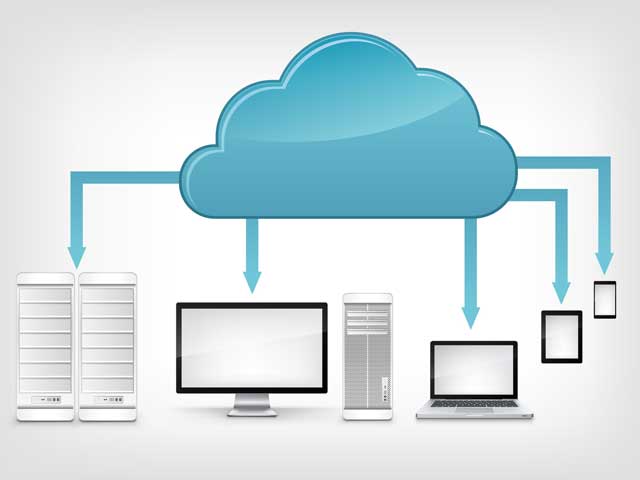What is a server?
What is a server, which is the foundation of the modern-day internet? What sort of servers there are? What type of advantages do different servers offer? All of these questions are answered in this article.
We can see the increase in the use of the terms related to the digital world and computers parallel to the increased use of technology and the internet in our daily life. Server is one of the terms introduced by the Internet. A server can be explained as a powerful computer that administers a network, contains a database, shares files and apps, and contains emails with websites.
Server which makes it possible to access the web with devices works non-stop. It is crucial for servers to work 7/24. Websites with a non-functional server can’t broadcast. Thus that site can’t be accessed by users.
Where are the servers located?
They need to be kept in high-security environments to ensure uninterrupted communication. Servers are kept in special places called data centers. Of course, it is possible for enterprises to create special places for their servers. However, it is costly to cultivate the right conditions and secure perimeter for even a single server. For this reason, it is more feasible and practical to use existing data centers to host servers.
While purchasing server services it is important to obtain detailed knowledge about the hosting conditions. The area which the servers are hosted is important considering the assurance of uninterrupted connection of the servers.
What are the server types?
Servers host applications and hardware that are customized for their intended use. Therefore, there are different types of servers according to their purpose of use. Server types, usage purposes, and features can be listed as follows;
Dedicated Server

Dedicated server, also known as a non-shared physical server, is easy to host. High technology and special equipment are needed to set up a dedicated server. Thanks to its hardware and software capacity, it can easily perform many operations such as antivirus update, intrusion detection, security control, DDoS protection, operating system update, database management, backup, restore, and DNS hosting on the network where it is used. The processor, RAM, and disk space of non-shared servers belong to only one person or a business. Therefore, it is extremely safe to use. Dedicated server is an ideal server for businesses with high volume traffic, large numbers of images, and data. The unshared server offers high performance.
VDS Server
VDS is a virtual dedicated server. Although it is often confused with Virtual Private Server (VPS) there are certain differences. VDS, a server created with the virtualization can be modified according to the needs of the user. VDS server hosts independent operating system and server software.
Which sites are suitable for VDS servers?
VDS servers are ideal for high-traffic websites and corporate websites. It is possible to experience problems with speeds in these high-traffic websites. Speed problems affect visitors negatively. For this reason, it is recommended that large-scale enterprises use VDS servers. Because VDS servers offer high-performance at all times.
What are the advantages of VDS servers?
Disk space, RAM, and CPU are non-shared. Therefore, it is not possible to use the resources of other sites.
It provides more control over the server with root access.
Resources can be increased if the websites need them.
It can deal with the surges in the traffic.
There are no lag and loading problems.
It is cheaper compared to Dedicated servers.
VPS Server

VPS server refers to the separation of a physical server into virtual server parts using virtualization software. VPS server, which allows a single resource to be used by a number of people, means a private virtual server. Thanks to the VPS, there can be more than one private virtual server running completely independently of each other on the physical server. Since the areas on the VPS server are clearly separated from other users, user-related problems do not occur. The speed problem of any of the VPS server users using the same physical server does not affect other users.
Which sites are suitable for VPS servers?
Every website has different needs. For this reason, certain types of servers should be used to serve the specific needs of a website. Otherwise, it will not be possible for websites to work efficiently. E-commerce sites, high-traffic business, and finance web applications, and resource-intensive sites can use VPS servers. It is possible to host more than one site belonging to a business on the same VPS server.
What are the advantages of VPS servers?
There is no file access and data exchange between the separated domains.
Each user has its own memory, bandwidth, and storage.
It can easily provide the resources that traffic-receiving websites need.
It makes it possible to scale the resources.
It offers independence thanks to its flexibility and root access.
It has features that allow configuration to be made to enhance sites.
It is possible to apply and increase security protocols.
Cloud Server

Although the cloud server is similar to VPS due to some of its features, there are fundamental differences that distinguish the two. The cloud server is the division of the network into servers formed by more than one physical server. In VPS there is only one physical server. One of the reasons why cloud server has been preferred recently is its scalability. It is also possible to increase the storage space of the cloud server. It is not possible to increase the capacity because the size of the storage space in the VPS server depends on the physical server. In cloud servers there are no fixed prices. Pricing is done accordingly to the resource use. Pricing is based on storage level, traffic spent, and CPU clocks used. For this reason, cloud servers can be very cheap in certain situations.
Which sites are suitable for Cloud servers?
It is suitable for all websites as the cloud server does not have any disadvantages to websites. For this reason, hosting companies mostly prefer cloud servers today.
What are the advantages of cloud servers?
It offers unlimited storage space.
It organizes access traffic.
It makes budget management easy as payment is made according to the area used.
It offers uninterrupted service.
Updates are made during low traffic hours. This is important for performance.
It offers high data security.
Did you see that – Equipment Used in Mobile Phone Repair



